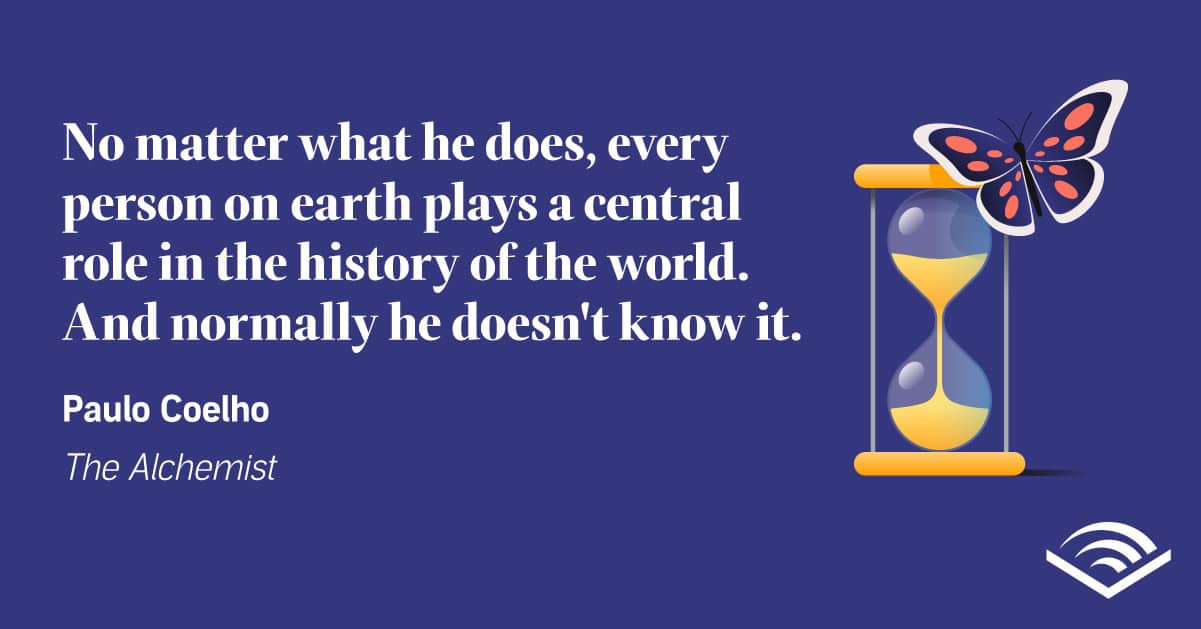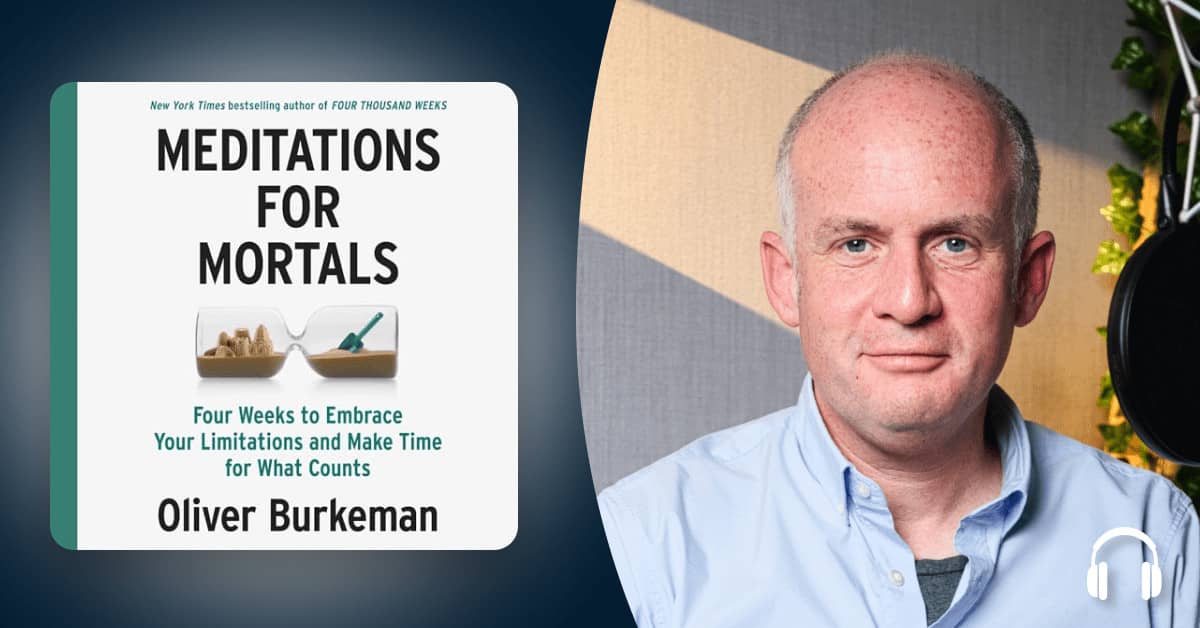Note: This interview was originally published on Audible.com.
Mel Robbins's latest Audible Original, The Let Them Theory, dares us to tune out others in order to tap into our own potential. Here, I asked the bestselling author of The 5 Second Rule to walk us through the moment inspiration struck, how we can take steps today to let go of external expectations and validation while avoiding common pitfalls, and what she’s personally aiming to accomplish this year.
Rachael Xerri: How did you come up with The Let Them Theory? Was there an aha moment similar to when you invented The 5 Second Rule?
Mel Robbins: As silly as it seems, my aha moment with The Let Them Theory came at my son’s high school prom. Long story short, I was trying to micromanage a situation that had absolutely nothing to do with me. And although this may seem like a small thing, it really made me reflect on how much time and energy I spent trying to control people and situations that I simply couldn’t.
I wanted people to like me. I wanted them to approve of my career choices. I wanted grocery store lines to move faster. I wanted my favourite bagel shop to have the bagels I wanted. I wanted my friends to include me. In short, I wanted to control how everyone else was living their lives.
As you can imagine, this was not only useless—because you’ll never be able to control anyone but yourself—but it was also exhausting. Think about how much of your energy goes toward wishing others were different.
The second I started saying “Let Them,” I felt this massive weight lift off me. I was less stressed, less frustrated and less drained. And a funny thing happened: The more I stopped trying to control others—caring about their opinions, tiptoeing around their emotions or trying to control their actions—the better my relationships became.
The “Let Them" theory is the single greatest tool I have found for improving my relationships with other people and with myself.
Why do we spend so much energy thinking about what others think of us, and what’s the first step toward breaking free?
It’s totally normal to spend time thinking about what others think of us. Humans are social animals. For thousands of years, our survival depended on belonging to a group or tribe—we evolved to rely on each other, to work together and to thrive best when we’re connected. Being accepted and liked by others meant safety, resources and protection. In short, our brains are wired to crave belonging because, for much of human history, rejection could mean life or death.
Even though this instinct is natural and makes sense, in today’s modern world, it can lead to a lot of problems: chronic people-pleasing, not pursuing your goals or passions for fear of what others will think, and constantly second-guessing yourself just to fit in.
The first step toward breaking free from this instinct is accepting a simple truth: You will never be able to control what other people think of you. You can say the right things, do the right things, show up as perfectly as you know how—and still, there will be people who don’t like you, misunderstand you or judge you. This is where the first part of the “Let Them" theory comes in: Let Them think bad things about you. Because you cannot control them.
Once you accept that nothing you do will ever give you control over other people’s thoughts or opinions, you can shift your focus to what you can control: your actions, your integrity and how you choose to show up in the world. This is the second, and most important, part of the “Let Them" theory: Let Me. Let Me pursue what I want regardless of what people think. Let Me speak my truth even if I know it will disappoint someone. When you stop trying to curate other people’s perceptions of you, suddenly, you reclaim all that energy to focus on what truly matters—how you feel about yourself.
What are some of the most common traps to avoid when it comes to not letting others’ opinions stand in the way of making progress toward our goals?
One of the most common traps is seeking validation from everyone before taking action. It’s natural to want reassurance, but when you wait for everyone to agree with your choices or approve of your goals, you give away your power. Not everyone will see your vision—and that’s okay. Your progress can’t depend on other people’s permission.
"Only you decide what is true about you—through your words, through your actions, through the life you build for yourself."
Another common mistake is the assumption that if someone thinks something about us, it must be true. Here’s a newsflash: Your parents thinking you’re lazy doesn’t mean it’s true. Your boss thinking you’re dumb doesn’t mean it’s true. Your ex thinking you’re not worthy of commitment does not mean it’s true. Only you decide what is true about you—through your words, through your actions, through the life you build for yourself. So Let Them think what they want about you, and Let Me create the life I want for myself.
And finally, a huge trap that you fall into is chronic comparison. I have an entire chapter dedicated to this in The Let Them Theory because in today’s hyper-social world—where we’re all scrolling through our feeds, seeing everyone’s European vacations, perfect relationships, and ultra-healthy lifestyles—it’s easy to get caught up in comparison. You let it paralyze you, thinking, “Why aren’t I where they are? Why don’t I have what they have?” Or you let fear take over: “What if I try that and fail?” or “There’s no way I can succeed because they already did it.”
But here’s the thing: You have two choices. You can let comparison be a form of self-torture, or you can let it be your teacher. Instead of being resentful or jealous of other people, you can use that emotion to fuel you and inspire you. You can let other people’s success be the roadmap for your own. Let Them have an incredible career. Let Them have a beautiful, loving relationship. Let Them have the most fun friend group. Let Me ask questions, takes notes, and get to work.
If you could choose just one thing for listeners to take away from The Let Them Theory, what would it be?
The one thing I want people to take away from The Let Them Theory is this: As soon as you stop trying to control others, you gain control of your life.
So many of us feel like the world just happens to us because you’re spending your effort on the wrong things. You try to get your boss to like you. You try to get your partner to treat you the way you want. You try to change the way your parents think of you and speak to you. But at the end of the day, you will never be able to control those things.
If you took all the energy you spend wishing others would be different and redirected it toward the one thing you can control—yourself—where would you be? Who would you become?
It’s true, life isn’t fair. Some people will have advantages. Others will get lucky, be given things they don’t deserve or be more attractive, richer, smarter or more talented. But the vast majority of your life is still within your control.
If you focus on how you spend your time, if you’re vigilant about where you direct your energy and if you commit to putting in tiny, consistent actions every single day, the life you want becomes possible.
Do you have any personal goals this year? Anything you’re working on next?
My biggest goal for this year is to live in the present as much as possible and truly savour every second. The Let Them Theory has taken off in a way I’ve never experienced before. It’s come at a moment when I think the world desperately needed it, and I’ve never felt such a palpable sense of momentum on any project I’ve worked on.
In moments like this, it’s easy to get caught up in the day-to-day insanity: scheduling, squeezing in commitments and packing my calendar as much as possible. But I know this is a once-in-a-lifetime moment. My goal is to take a step back every single day and just be. I want to remember what this feels like. I want to enjoy every incredible moment. I don’t want to look back and realize it was all just a blur because I was too busy stressing over the little things.
Fifteen years of work have led to this book. And I’m here to celebrate it, to be present for it and to cherish it.







